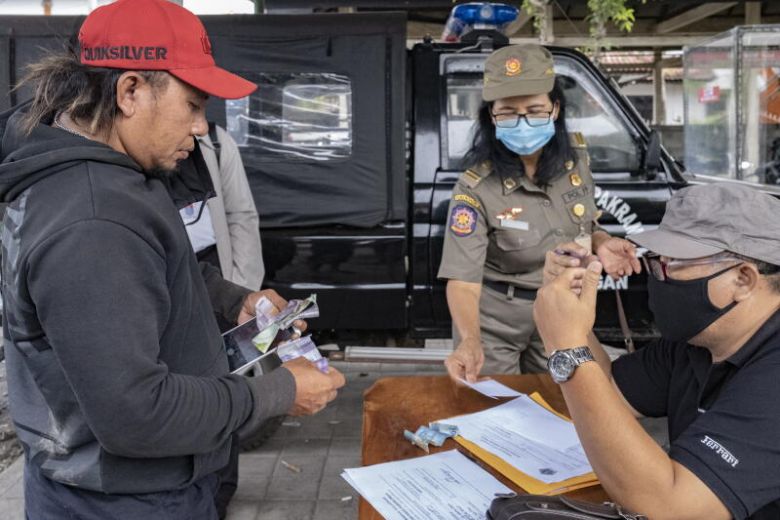JAKARTA – Indonesia is caught in a blame game as Covid-19 cases surge.
The government has blamed it on the failure of people to comply with safe protocols but critics say the government has prioritised resuscitating the economy rather than dealing with the pandemic.
Much of the anger against the government has been directed at Health Minister Terawan Agus Putranto.
Thousands of Indonesians have signed an online petition calling for his dismissal because he has “failed” to curb the surge in cases.
So far, around 40,000 people have signed the petition which was posted on the Change.org website on Sept 30 by a coalition of civil society groups, academics and social organizations.
“From the beginning, Health Minister Terawan has taken this outbreak lightly. His handling (of the pandemic) is not serious,” the coalition wrote.
They demanded that President Joko Widodo replace the minister with someone more competent.
Dr Irma Hidayana, one of the petition organizers, told The Straits Times that more than 250 health workers had succumbed the disease due to lack of protective equipment.
As at Tuesday (Oct 6), Indonesia, the world’s fourth-most populous country with 270 million people, has recorded 311,176 Covid-19 cases, the second highest in Southeast Asia after the Philippines. But Indonesia has the highest death toll in the region, with 11,374 fatalities.
The main reasons for the spike in cases in Southeast Asia’s largest economy include insufficient testing, weak contact tracing and the lifting of large-scale social distancing, known locally by the acronym PSBB, in the provinces since June.
The public has criticized the government’s handling of the pandemic, saying it was more concerned about the economy than public health.
Mr Joko however defended the government’s response.
In a video statement last Saturday, he said: “Prioritizing health matters does not mean we are sacrificing the economy, because sacrificing the economy is equal to sacrificing the lives of tens of millions of people.
“Overcoming the pandemic is difficult, it requires hard work together, but I’m sure we can do it,” he said.
“The most important thing in this situation is that we should not be indulging in polemics and there should be no commotion.”
The National Covid-19 task force has blamed the public for ignoring health protocols such as wearing masks and maintaining a safe distance.
Jakarta, a city of 11 million, remains the worst-hit in the country, accounting for 80,979 cases and 1,802 deaths as at Tuesday. The city’s administration has re-imposed a partial lockdown to try and contain the spread of the virus amid reports of a shortage of hospital beds to treat patients.
Other badly affected provinces are West Java, Central Java and East Java.
Tourism-dependent Bali, whose economy has been hit severely, has had to delay a plan to welcome foreign visitors by September, pushing it instead to the end of this year. The resort island, which reopened to local tourists in July, has refocused efforts on this front for now.
